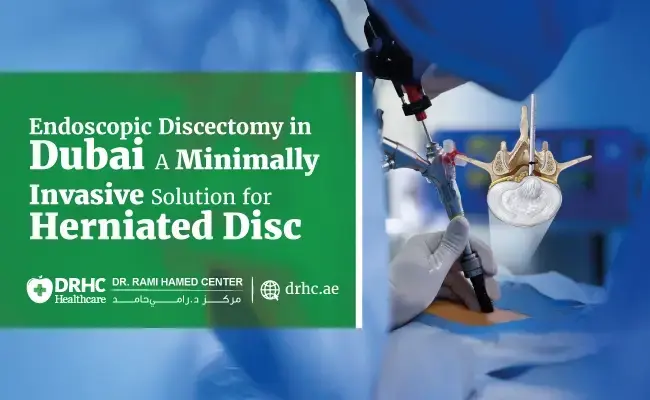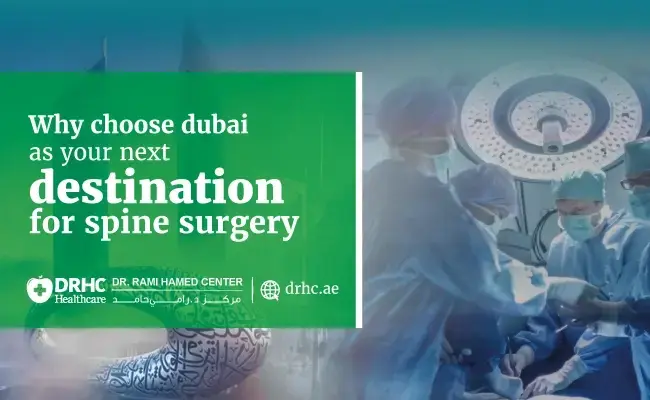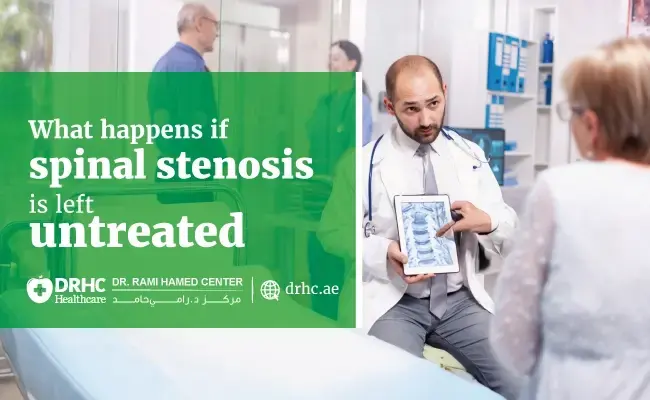.webp?width=650&height=400&name=DRHC%20BLOG%20Creatives%2002-20%20(1).webp)
Facet joint pain is a common cause of chronic back discomfort, especially in older adults. These small joints, located at the back of the spine, help provide stability and allow smooth movement between the vertebrae. As we age, natural degenerative changes, such as arthritis or disc narrowing, can place increased stress on these joints—leading to inflammation, stiffness, and persistent pain.
For many elderly patients suffering from spinal stenosis or other degenerative spine conditions, spinal decompression surgery has proven to be an effective treatment not only for nerve-related symptoms but also for relieving facet joint pain. But how exactly does this procedure help?
Key Biomechanical and Neurological Reasons for Improvement
1. Reduced Nerve Root Compression = Less Referred Pain
Facet joint pain can be amplified or mimicked by compression of nearby spinal nerves (especially the dorsal ramus, which innervates the facet joints).
➡ Once decompression relieves pressure on the nerve root, neurogenic inflammation and referred pain from the joint decreases significantly.
2. Improved Spinal Alignment = Less Mechanical Stress on Facets
Degenerative changes (disc collapse, spondylolisthesis) increase facet joint loading, especially in extension.
➡ Decompression procedures like laminectomy, discectomy, or indirect decompression can restore disc height or alignment, reducing abnormal stress on the facet surfaces.
3. Reduced Local Inflammation
Chronic compression often triggers low-grade inflammation, not just in nerves but in the posterior elements like:
- Ligamentum flavum
- Facet capsules
- Adjacent muscles
➡ Surgical decompression reduces biochemical irritation in the area, leading to improved facet joint mobility and comfort.
4. Improved Motion and Muscle Function
Pain from nerve impingement leads to muscle guarding and stiff movement, which can overload the facet joints.
➡ After decompression, patients regain more natural spinal mobility, and paraspinal muscles stabilize the spine more efficiently, reducing strain on the facets.
5. Psychological Relief
Elderly patients often describe multiple overlapping pain sources. Once the dominant source (e.g., stenosis) is resolved:
- Pain perception shifts
- Muscle tension relaxes
- Overall pain threshold increases
Our Related Blogs:
- What Makes Minimally Invasive Spine Surgery So Effective?
- Benefits of Endoscopic Spine Surgery vs Traditional Surgery
- Why Endoscopic Spine Surgery Is a Game Changer
- How Endoscopic Discectomy is Done: Step-by-Step with Dr. Rami Hamed
- Will You Need Spine Surgery? Here’s How We Decide
- How Spine Surgery Has Changed in the Last 10 Years
- Understanding Endoscopic Spinal Decompression: Who It Helps
- What to Expect During Recovery from Endoscopic Spine Surgery
Summary:
Facet pain improves after decompression not just because of what is removed, but because of what is rebalanced — nerve pressure, alignment, inflammation, and movement.
This is why even elderly patients with chronic facet pain may report unexpected relief following a well-executed spinal decompression.
Personalized Treatment at DRHC Dubai
At the Dr. Rami Hamed Center, we approach spinal decompression and facet joint pain with a comprehensive evaluation that includes clinical assessment, imaging, and consideration of the patient’s age, bone health, and functional needs. Our goal is to provide elderly patients with effective, minimally invasive options that improve quality of life and reduce dependency on medications or prolonged therapy.
If you or a loved one is dealing with persistent back pain or diagnosed with facet joint issues, contact our Spine Clinic at DRHC Dubai to schedule a consultation. Our team is here to help you return to a life of greater comfort and mobility.
Dr. Rami Hamed
Consultant Spine & Orthopedic Surgeon
Founder, DRHC – Dubai Healthcare City
📞 +971 4 279 8800
🌐 www.drhc.ae
📍 Dubai Healthcare City, Building 52
Topic: orthopedic Back Pain




.jpg)




Leave a comment